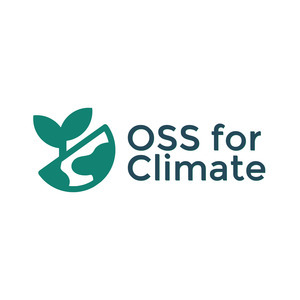Episode 4
Advancing Wind Energy using OSS with Rafael Mudafort
June 20th, 2024
38 mins 15 secs
About this Episode
Guest
Rafael Mudafort
Panelist
Richard Littauer
Show Notes
Join us in this episode of "OSS for Climate" as host Richard Littauer chats with Rafael Mudafort, a Senior Researcher in Wind Energy Modeling at National Renewable Energy Laboratory (NREL). Raphael discusses his work with the U.S. Department of Energy's Wind Energy Technologies Office (WETO), the importance of wind energy in combating climate change, and the global reach of their open source software tools. Discover how NREL collaborates with industry and international partners to advance renewable energy technologies and the challenges and benefits of maintaining open source software in the research community. Tune in to learn about the innovative projects and holistic approaches driving the future of wind energy. Press download to hear more!
[00:01:25] Rafael discusses climate change and the importance of renewable energy like wind energy, and he highlights the security of the energy mix and the risks of relying on a single energy source.
[00:03:12] Rafael describes the difference between wind modeling for energy and for activities like sailing and emphasizes the specific applications and goals of the DOE’s Wind Energy Technologies Office.
[00:06:03] We hear about the DOE’s mandate to complement, not compete in the industry, and how NREL focuses on research and providing accessible software tools.
[00:07:51] Richard asks about the relationship between NREL, DOE, and Rafael’s work and inquires about the open source nature of their software. Rafael explains the U.S. Department of Energy structure and focus areas, including managing the nuclear stockpile and energy-related research.
[00:10:42] Rafael explains the funding an iterative research process between DOE and NREL, and that the software produced as part of the research is usually open source and hosted on GitHub under the NREL organization.
[00:12:03] There’s a discussion on the importance of software as a research product in 2024, especially in wind energy due to the scale of systems.
[00:15:07] Rafael discusses reviewing papers for JOSS and the importance of metrics for research software engineers, and the tension between the need to produce software for research and the lack of incentives for developing well-documented and accessible tools.
[00:17:36] Richard asks about community efforts to sustain projects and prevent them from becoming abandoned research ware. Rafael admits community efforts but notes challenges in sustaining projects without DOE funding and finding new funding is crucial for continuation.
[00:19:20] Rafael explains the value of industry collaborations, often involving researchers within industry. NREL researchers are passionate about impactful work in the wind energy industry.
[00:22:00] A question comes up on whether it’s easier to work on closed source software with companies or the military. Rafael is not familiar with those policies, but he talks about a project he worked on with Makani.
[00:24:06] There’s a discussion on the benefits of open source despite the challenges and how it aligns with the NREL’s incentives.
[00:25:53] Richard inquiries about the international use of open source tools and models developed in the U.S. Rafael confirms that software under the WETO umbrella has a global reach and NREL collaborates with European research organizations. He also highlights the importance of global reach and feedback from international users.
[00:27:36] Richard discusses usability and accessibility for researchers outside Europe and the U.S. Rafael acknowledges the accessibility challenges due to supercomputer requirements and agrees to consider translations and other accessibility improvements.
[00:29:19] Rafael details his current project on holistic modeling of WETO-supported software which is publicly available on GitHub, and he also mentions contributing to opensustain.tech and using CHAOSS metrics to assess community health of tools.
[00:33:34] Find out where you can learn more about Rafael and his work on the internet.
Quotes
[00:07:05] “You can understand through a paper, but if you want to use that, the lowest barrier to entry is to use the software.”
[00:07:14] “[Our OSS] is the front end of the research that is produced.”
[00:13:26] “Scientists are trying to answer scientific questions and drive the research, and engineers are producing all the things that enable answering those questions, so the two can’t live without the other.”
[00:24:45] “Especially since it is publicly funded, I think that these tools should be made available.”
[00:27:27] “You might think that hearing a bunch of problems about our software is not great, but I love it because it means it’s being used.”
Spotlight
- [00:34:24] Richard’s spotlight is New Zealand Geographic magazine.
- [00:34:58] Rafael’s spotlight is the Journal of Open Source Software (JOSS) and the US-RSE (US Research Software Engineer Association).
Links
- SustainOSS
- SustainOSS Discourse
- SustainOSS LinkedIn
- Sustain OSS BlueSky
- SustainOSS Mastodon
- podcast@sustainoss.org
- Open Collective-SustainOSS (Contribute)
- Open Sustainable Technology
- Richard Littauer Socials
- Rafael Mudafort GitHub
- Rafael Mudafort LinkedIn
- National Renewable Energy Laboratory (NREL)
- National Renewable Energy Laboratory-GitHub
- WETOStack-GitHub
- Makani
- WETO
- CHAOSS Metrics and Metrics Models
- New Zealand Geographic
- The Journal of Open Source Software (JOSS)
- The United States Research Software Engineer Association (US-RSE)
Credits
- Produced by Richard Littauer
- Edited by Paul M. Bahr at Peachtree Sound
- Show notes by DeAnn Bahr Peachtree Sound
